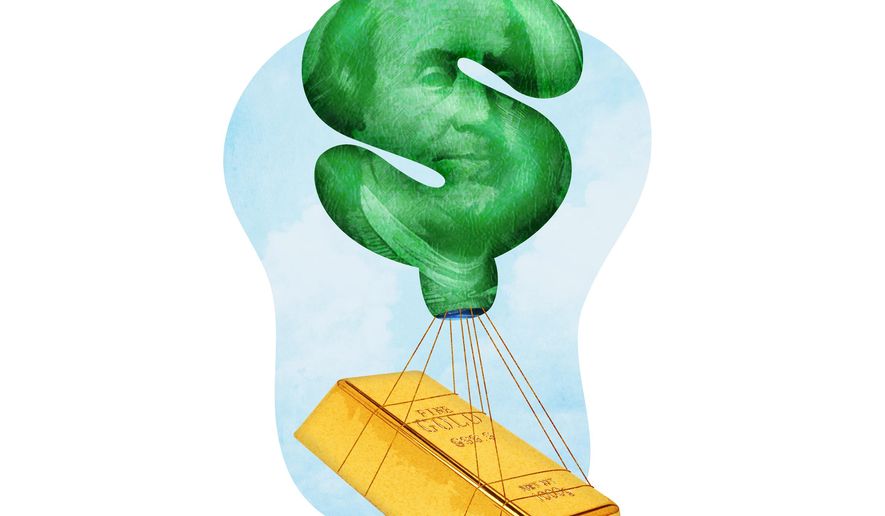OPINION:
Conservatives hold that wealth and liberty correlate. This proposition was self-evident in the context of the Cold War and remains true today. It is the reason China cannot surpass the West in terms of wealth creation (contrary to the hysterics emanating from The Economist): a repressive country that continues to indoctrinate its students in the sayings of Chairman Mao can only imitate, not innovate.
What if liberty and riches at times diverge, though? A shibboleth of mainstream economists, repeated recently in The National Review, of all places, is that countries recovered from the Great Depression in the order that they abandoned the gold standard.
This feat in the United States was accomplished through the fiat of executive order, followed by legislation invalidating gold clauses in private contracts and criminalizing possession of gold bullion. Even assuming, for the sake of argument, that this abrogation of liberty resulted in economic growth, should conservatives applaud?
In fact, the gold standard did not cause the Great Depression, nor even did the bastardized gold exchange standard under which the United States then operated. As Irving Fisher realized — after he had lost his fortune — the depression was caused by excess debt.
Our fractional reserve system provides that the banking system may lend out $100 at term for every $10 deposited on demand, creating the $90 difference ex nihilo. Whereas the $10 deposit can be withdrawn at any time, the $100 loan may not mature for years, generating extreme maturity mismatch on banks’ balance sheets. It is the unwinding of this insanity, whether the debts be based on gold or dollars, that causes depressions.
No doubt, money printing — the modern equivalent of leaving the gold standard — can plug the holes in banks’ balance sheets when the demand deposits at the base of the credit structure are withdrawn. This is the policy recommended by National Review Senior Editor Ramesh Ponnuru and other “market monetarists” such as the American Enterprise Institute’s James Pethokoukis and former Obama adviser Christina Romer. They argue the Federal Reserve hasn’t printed fast enough.
Market monetarists, however, never consider why the banks — not to mention households, corporations and government — are over-levered in the first place. It is precisely because the Federal Reserve since 1933 has consistently bailed out borrowers through printing money that debt is in such demand.
This printing confiscates value from every person holding or owed dollars and transfers it to debtors, shifting wealth from savers to spenders, from the prudent to the reckless. It violates the spirit of the Fifth Amendment’s prohibition against taking private property for public use without just compensation. It also elevates institutional privilege over individual liberty, rejecting the principles of classical liberalism upon which this country was founded.
Worse, the Fed prints this money by buying government bonds from banks, funneling ever more resources through Wall Street to the state. Abandoning the discipline of gold thus enabled the explosion of the regulatory and welfare state by freeing the government from the practical limits imposed by direct taxation. What could be less conservative than defending the foundations of the nanny state?
In 1992, Milton Friedman admitted: “Before 1971, every major currency from time immemorial had been linked directly or indirectly to a commodity. [T]he world is now engaged in a great experiment to see whether it can fashion a different anchor, one that depends on government restraint. The verdict is far from in.”
Since then, the Fed has engendered bubbles in tech, the Internet, biotech, housing, and now junk and government bonds. The Bush and Obama administrations both have confirmed that government spending cannot be self-restrained. The experiment has failed. It is past time to abolish the Federal Reserve and permit the market the liberty to return to a gold standard.
Daniel Oliver Jr. is a director of the Committee for Monetary Research and Education.




Please read our comment policy before commenting.